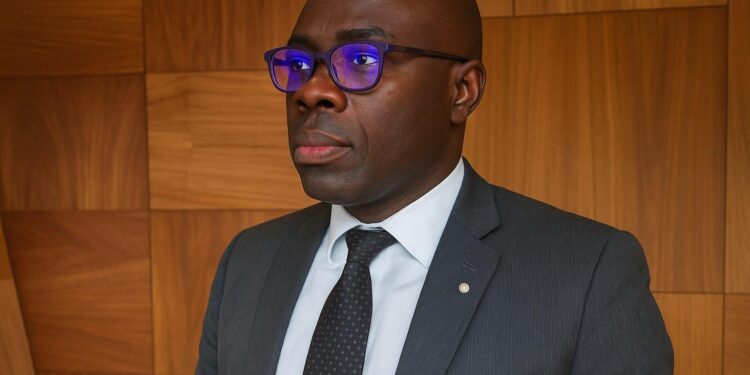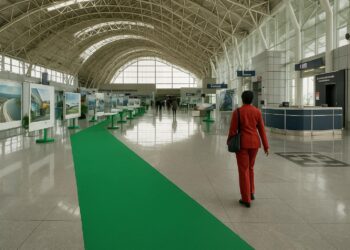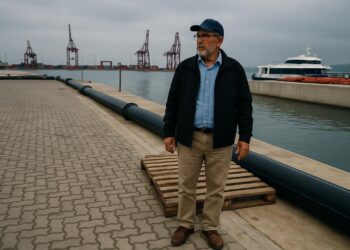Congo Wood Trades Fair Boosts Local Demand
Standing opposite Brazzaville’s Alphonse Massamba-Débat stadium, the future Craft Village hosted the fourth Wood Trades Fair from 11 to 27 August 2025. The biennial gathering showcased Congolese artistry in timber and raffia, attracting nearly one hundred exhibitors from across Africa.
Minister of Small and Medium-Sized Enterprises Jacquéline Lydia Mikolo closed the show alongside senior officials and United Nations agency chiefs, celebrating an unexpected 55.9 million FCFA in sales against an initial target of 15 million FCFA.
“This figure is more than a number; it proves a dynamic value chain capable of carrying the Made-in-Congo label,” the minister said, stressing that the commercial success also reaffirmed cultural pride in the country’s forest heritage and ancestral craftsmanship.
Likouala Timber Bets on Furniture Value Chain
Among the stands, Likouala Timber drew steady traffic. Originally a logging company, the firm is now scaling production of furniture panels and solid-wood joinery in pursuit of downstream value addition, according to sales lead Patrick M’pouassa-Touré.
He urged the Government to curb costly office-furniture imports and prioritise local procurement. “We already supply most school desks; the same durable species can meet every administrative need,” he told visitors, pointing to display boards milled entirely from certified Congolese hardwood.
Likouala Timber markets non-agglomerated, kiln-dried boards in multiple thicknesses, allowing carpenters to craft tables, beds or decorative pieces without relying on particleboard shipped from Asia or Europe. The proposition aligns closely with Brazzaville’s strategy of substituting imports through domestic transformation.
Regulation and Finance Favour Import Substitution
The country’s 2020 forestry code already mandates that 100 % of felled logs be processed locally by 2025, a deadline reinforcing the company’s pivot. Sector analysts note that the regulation could triple industrial demand for planing, drying and finishing capacity over the next two years (official data).
For investors, the fair’s revenue outturn sends a timely price signal. Average transaction size per exhibitor reached roughly 560 000 FCFA, indicating a market appetite for higher-margin finished goods despite persistent inflation and tighter CFA-zone liquidity.
Finance houses present at the venue confirmed that micro-leasing schemes for workshops were oversubscribed, while fintech platforms recorded a 20 % spike in QR-code payments during the exhibition, reinforcing the case for blended-finance vehicles targeting artisan clusters.
Yet supply bottlenecks persist. Many carpenters report lead times of six weeks for graded planks, partly because only four mills in the country operate modern drying tunnels. Likouala Timber says its recent upgrade in the northern Likouala province could cut delays to ten days.
Public Procurement and Sustainability Drivers
Export markets remain relevant. The company keeps a foothold in log sales to China, cushioning cash flow while domestic demand scales up. Executives insist that finished-product margins are four times higher, provided public purchasers adhere to local-content clauses in framework contracts.
During her closing address, Minister Mikolo promised to “fine-tune procurement rules so that every school, hospital and ministry first looks to Congolese manufacturers”. Observers expect a revised decree clarifying technical standards and environmental criteria before the 2026 budget cycle.
Such a move could unlock scale economies. The Federation of Congolese Wood Industries estimates that replacing imported desks alone would require 8 000 additional carpenters and inject 12 billion FCFA per year into rural economies, assuming current population growth trajectories.
Environmental stakeholders welcomed the shift toward certified solid wood, noting that non-agglomerated panels avoid formaldehyde resins associated with particleboard. Carbon-credit developers are also watching, as increased local processing can improve traceability—a prerequisite for monetising Congo Basin forest stewardship.
Investment Outlook for Timber Processing
For diaspora entrepreneurs, the fair highlighted gaps in design, marketing and e-commerce where overseas skills could plug in. Several start-ups run by Congolese in Paris and Montréal have already signed letters of intent to supply digital catalogues and augmented-reality visualisation tools to Brazzaville workshops.
Looking ahead, Likouala Timber plans to commission a 5 MW biomass cogeneration plant using offcuts, cutting energy costs by 40 % and freeing capacity for night shifts. Management targets ISO 9001 certification by early 2026 to access institutional tenders in Central Africa.
Credit analysts view these steps positively but underline foreign-exchange volatility as a key risk; machinery imports are euro-denominated while sales are largely in CFA. A gradual reduction of import dependency for spare parts could therefore bolster both competitiveness and macro-resilience.
Bankers at the fair hinted at a forthcoming 10 billion FCFA credit line, jointly backed by the African Development Bank and a local consortium, to finance kiln upgrades, safety equipment and gender-inclusive training programmes for young joiners.
Industry observers believe commercial banks could crowd in once the pilot proves repayment capacity. Demand risk is perceived as low because public projects in education and health generate predictable offtake for desks, beds and shelving produced to standardised designs.
If implemented, the combined measures could lift local timber utilisation from 25 % to 60 % of harvest volumes within three years, according to internal projections shared by the Ministry of Forest Economy during a side event.












































